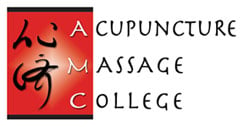Acupuncture Has Scientific Basis
Although acupuncture is often defined within the paradigm of traditional Chinese medicine, it has a scientific foundation and firm basis in modern science, according to acupuncture physician Dr. Adrian White, Editor-in-Chief of the journal Acupuncture in Medicine.
“The perception is that acupuncture is still all about chi and meridians,” says White. “One of the major problems facing acupuncture is the preconceived notions both the public and health care professionals have about it.”
This traditional viewpoint can contribute to hindering its acceptance among conventional health care professionals and its use in treating various health conditions besides that of pain syndromes, ranging from arthritis to nausea.
“Acupuncture becomes very plausible when explained in terms of neurophysiology,” says White. “In the past it was easy for doctors and scientists to dismiss acupuncture as ‘highly implausible’ when its workings were couched in talk of chi and meridians.”
“Many people, including practitioners and the public, have held on to the traditional explanations,” White explains. “Unfortunately, the scientific approach just isn’t as sexy.”
Scientific evidence indicates that acupuncture triggers nerves in the brain and spinal cord to release natural painkiller and mood-enhancing chemicals, such as serotonin and opioids.
More recent evidence pinpoints that an acupuncture needle applied outside of traditional meridians can still produce a positive health effect. “Points don’t have any magical properties; they are simply convenient locations to needle,” White says.
The traditional viewpoint may also have an effect on quality research, as points outside of the meridians are often used as a comparator to established points located within the meridians."This misunderstanding has been a fundamental flaw in the design of many acupuncture studies," says White.
High quality research studies that evaluate the effects of needling both inside and outside of the meridians are necessary to establish acupuncture’s health care benefits within the conventional science and medicine context.
"The aim of Acupuncture in Medicine is to build up the evidence base for acupuncture's place in the modern health service," says White. “Acupuncture does have a place and is an effective approach to common health conditions that can be difficult to treat.”
For information about Acupuncture & Massage College’s Oriental Medicine and Massage Therapy programs call Joe Calareso, Admissions Director, at (305) 595-9500.

 (305) 595-9500
(305) 595-9500






